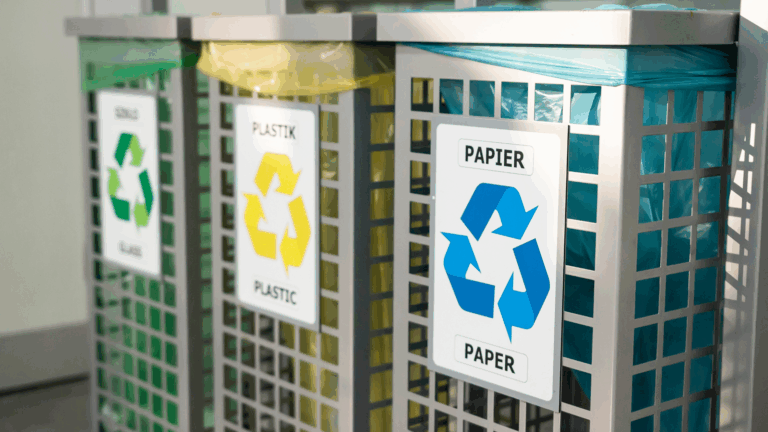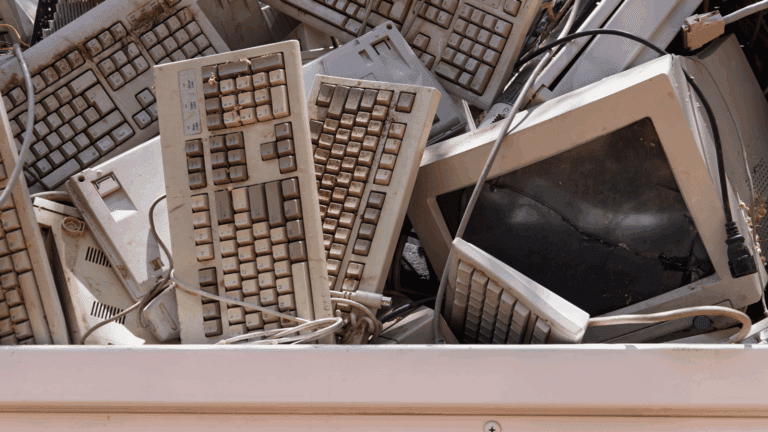Achieving sustainability means planning ahead, especially when it comes to commercial waste
Every business is responsible for contributing to a more sustainable future, and efficient waste management techniques are a vital part of these efforts. Reducing waste production, increasing recycling and reuse, and ensuring hazardous waste is disposed of safely is all part of a sustainable waste management plan.
Sustainable waste targets can help to make these plans more concrete, giving your organisation goals to aim for that align with wider movements like net zero. There are several steps businesses can take to set and achieve waste management targets, smoothing the transition to a greener, cleaner future.
Carry out a waste audit
The first step to improving your commercial waste management is understanding it. A comprehensive waste audit can provide a clear picture of where your business currently stands in terms of waste management, highlighting areas for improvement and ways to streamline operations.
Reduce, Reuse, Recycle
Reducing the amount of waste you produce is one of the most straightforward and effective ways to lower your company’s carbon footprint. Using robust products with minimal packaging can make this more attainable, while reusing products wherever you can will cut the amount of waste your business is sending to landfills.
Certain materials like paper, plastics, glass, and metals can and should be recycled. Following recycling guidelines will help your business stand out as an environmentally responsible organisation.

Composting
A lot of waste can be used for alternative purposes, rather than simply being thrown out to produce methane in landfills. For example, organic waste like leftover food and outdoor debris can be used for composting, produce nutrient-rich soil for an aesthetically pleasing outdoor area in your workplace.
Responsible Disposal
Every piece of waste should be managed responsibly, but it’s particularly important when considering hazardous waste, substandard items, or items that have expired. By ensuring such items are disposed of responsibly, you protect both people and the environment. If left unchecked, hazardous waste can result in dangerous environments for local wildlife, and any people who may come into contact with it.
Waste-to-Energy
Waste-to-Energy is an initiative which encourages non-recyclable waste items to be converted into energy, including electricity, heat, or steam. This process reduces the amount of waste sent to landfills, and can help your organisation meet its energy needs in a greener, more sustainable way.
Education and Campaigning
Sustainable waste management isn’t the job of one person – it requires buy-in across your organisation and beyond, into the supply chain. This is why education and campaigning are so important. Changing behaviours requires educating staff, suppliers, and customers about the value of sustainable waste management. It can help encourage people to recycle, cut down on waste, and dispose of hazardous materials responsibly.
Legal Frameworks
Because sustainability is such an important movement in modern society, there are several initiatives, frameworks, and legal requirements in place for businesses across all sizes and sectors. These guidelines are there to limit the amount of damage a business can do, ensuring waste is disposed of and handled responsibly. Adhering to these frameworks is essential in long-term business sustainability and success.
Community Involvement
Being part of your local community is a great way to cement your business, increase customer loyalty, and build a strong reputation. It can also help with waste management, through such activities as community clean-up days, recycling incentives, and composting training sessions.

Contact Everflow today!
At Everflow, our goal is to make your utilities simpler. We ensure you get great-value contracts that are tailored to your needs and easy to manage.


